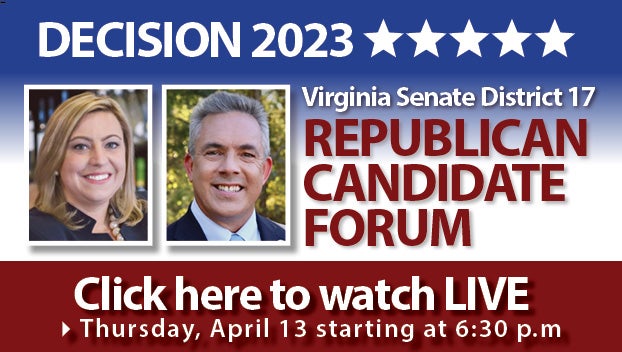Public comment policies clarified, reviewed
Published 9:16 pm Monday, September 14, 2020
|
Getting your Trinity Audio player ready...
|
Reviewing proposed changes to policies on public speakers at its meetings, the Suffolk School Board received clarity on who would be allowed to speak during those sessions.
School Board attorney Wendell Waller had previously presented the board’s Policy Review Committee with revisions to policies governing early and late appearances by public speakers at its meetings. The revisions coming out of the committee meeting stated that public speakers at board meetings open to the general public needed to be “members of the Suffolk community.” During early appearances, public speakers are invited to speak on agenda-related topics, and during late appearances, those who address the board can speak on non-agenda topics.
During a first reading to consider two separate ordinances governing the early and late appearances of public speakers at the board’s Sept. 10 meeting, Board member David Mitnick noted that he emailed the committee — Chairwoman Phyllis Byrum and Vice Chairwoman Dr. Judith Brooks-Buck serve on it — about concerns he had with the phrase “Suffolk community,” He asked that there be clarity on it.
“As I emailed the Policy Review Committee, there are some exceptions to that that need to be considered,” Mitnick said, “whether there are classroom teachers who live outside of Suffolk, or, as I pointed out, perhaps, parents that are separated or divorced and they both have joint custody, and if the parent … lives outside of Suffolk, we would be prohibiting them (from) bringing their concerns before the board.”
Initially, what appeared on the Electronic School Board web page were revisions adding the phrase “Suffolk community” to the two proposed ordinances, but without defining who was to be considered a part of it.
Following the suggestion from Mitnick’s email, both proposed ordinances were revised prior to the board’s meeting to define “Suffolk community.” However, Mitnick was unaware that those changes had already been made until Brooks-Buck notified him during the meeting.
Brooks-Buck, who chaired the board meeting in Byrum’s absence, explained what happened.
“You should have received, or it was added to the ESB (Electronic School Board), an amendment was made and added to the ESB to those two policies based on your recommendation — a definition of Suffolk community,” Brooks-Buck said. “There was a revision.”
She agreed with board member Sherri Story’s suggestion that the entire board be notified prior to the meeting when there are changes made subsequent to an agenda being posted.
The revised policy presented at the board’s meeting defines a member of the Suffolk community as anyone living in the city, a parent or legal guardian of a child enrolled in Suffolk Public Schools, a city-licensed business owner, someone who owns property in the city, a division employee or a student who is enrolled in one of the division’s schools.
It also states that each person would be allowed to speak for five minutes, “provided the total allotted time for all speakers does not exceed 30 minutes.”
The proposed policies also clarify how people can address the board at any of the board’s regular meetings open to the general public, noting they can speak at the meeting or submit remarks in writing to the board’s clerk.
The proposed ordinances can be found at bit.ly/EarlyAppearances and bit.ly/LateAppearances.



